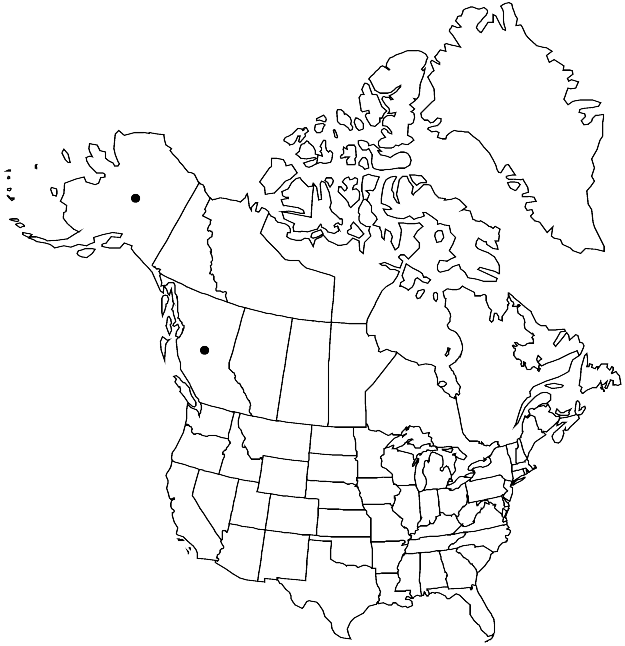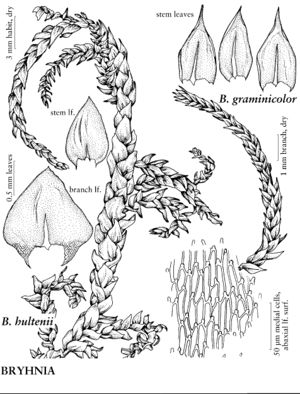Difference between revisions of "Bryhnia hultenii"
in A. J. Grout, Moss Fl. N. Amer. 3: 264. 1934.
FNA>Volume Importer |
FNA>Volume Importer |
||
| Line 49: | Line 49: | ||
|publication year=1934 | |publication year=1934 | ||
|special status=Selected by author to be illustrated | |special status=Selected by author to be illustrated | ||
| − | |source xml=https://jpend@bitbucket.org/aafc-mbb/fna-data-curation.git/src/ | + | |source xml=https://jpend@bitbucket.org/aafc-mbb/fna-data-curation.git/src/f6b125a955440c0872999024f038d74684f65921/coarse_grained_fna_xml/V28/V28_669.xml |
|genus=Bryhnia | |genus=Bryhnia | ||
|species=Bryhnia hultenii | |species=Bryhnia hultenii | ||
Revision as of 20:46, 24 September 2019
Plants medium-sized, in moderately loose to dense tufts, light green or yellowish to brownish. Stems 2.5–7 cm, creeping to dendroid-arching, straight to curved, terete-foliate, julaceous, occasionally regularly pinnate, branches to 6 mm, straight to slightly curved, terete- to complanate-foliate. Stem leaves erect, or patent and twisted to contorted, broadly ovate-triangular, broadest at 1/7 leaf length or below, slightly plicate, often shorter than broad, 0.7–1.2 × 0.8–1.2 mm; base broadly long-decurrent; margins serrulate to near base; apex broadly acute to rounded-truncate and short-apiculate, often cucullate; costa to 40–70% leaf length, weak, terminal abaxial spine absent; alar cells subquadrate to short-rectangular, to 45 × 25 µm, walls moderately thin, region of 5–7 × 8–14 cells, pellucid, reaching from margin 50–80% distance to costa, abruptly differentiated; laminal cells 15–40 × 6–12 µm, slightly prorate to prorate-papillose on abaxial surface; basal cells to 15 µm wide, region in 2 or 3 rows. Sporophytes unknown in North America.
Habitat: Soil, rock, cliff bases, under dense Alnus canopy, bottom of gullies, sides of brooks, moderate to strong shade, wet to mesic places
Elevation: low to moderate elevations (0-300 m)
Distribution

B.C., Alaska, e Asia.
Discussion
Records of Bryhnia hultenii from eastern North America are here referred to B. novae-angliae. These species are closely related, but, although some specimens are difficult to interpret, most can be identified. The appearance of B. hultenii is rather different from B. novae-angliae, as its stem foliage is julaceous, and its leaves are rather equal in size, strongly concave, and cucullate. Microscopic characters are highly variable. Bryhnia hultenii can usually be differentiated from B. novae-angliae by its sharply differentiated alar region composed of thin-walled, pellucid cells, as well as by the costa becoming thin distally and lacking a spine. H. Robinson (1962) found B. hultenii indistinguishable from B. novae-angliae.
Selected References
None.
